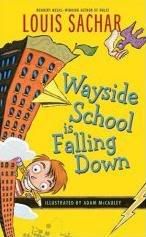A Sobering Awareness

Whoever claims to live in him must walk as Jesus did.
1 John 2:6
My days in junior high were the most unhappy in my whole life.
It was a time of great malaise for me, this I was certain of -and I was very right about that. I blamed my circumstances, my school, my family, and some of the things I am now the most thankful for. Occasionally I suspected my own attitude had something to do with it, but I sent the suspicion away -calling myself the victim.
We studied the Bible in school. I considered myself to be a Christian, but I questioned whether or not I was actually living in the way God had commanded me to live.
The Bible readings were required, and not a matter of personal choice. It would have been easy to let the passages go in one ear and out the other, but I was full of questions. I didn't really want to know what happened to Noah's ark, or who the Nephilum were (although these were the questions I asked out loud).
The real questions I had about the Bible were really questions I had about myself.
With every command I read from God, I wondered to myself, 'Is this something I am doing? If I stood before God, if my appearances were as nothing as they are before Him, would He say, 'Well done, good and faithful servant'?'
One day the teacher introduced three verses we would be memorizing from 1 John. I had never seen these verses before. I remember the exact way that he wrote them on the green chalk board thirteen years ago:
Do not love the world or anything in the world. If anyone loves the world, the love of the Father is not in him. For everything in the world - the cravings of sinful, the lust of his eyes and the boasting of what he has and does - comes not from the Father but from the world. The world and its desires pass away, but the man who does the will of God lives forever.
1 John 2:15-17
I wondered how I could memorize a verse which seemed impossible to even read. Do not love anything in the world?
Really?
There were a LOT of things in the world I loved.
I loved cartoons. I loved the cheap pizza my mom would buy for my sister and I at Costco. I loved going to the movies. I loved pop culture. More than all of it, I loved video games.
And could it be that here in this very place, John was telling in the full authority of the Bible not to love these things? If I did love them, would the love of the Father not be in me?
It sounded like I would go to hell, except that it was worded in the present tense. 'The love of the Father is not in him.'
I didn't care that the Bible did not forbid these things. I could stop doing them. I could stop watching my favorite shows. I could stop eating cheap pizza. I could (maybe) stop playing video games. But how could I stop LOVING them?
The second verse in the passage -the one about the cravings and the lust of the flesh and boasting about what a person has and does- that sounded just like me, just like my style.
It was like I was singled out and laid bare.
After digesting this verse for some time, I gave this messy region of my heart over to God (at about the time I was baptized).
These days I don't struggle with loving video games. There are moments where I get to do fun things and sometimes I struggle with loving those moments.
Then I teeter-totter about it and say to myself, 'Well, I don't love those things that much.'
And then I think back and I remember the chalk board on that day. I remember the verse that God commissioned John to write to me ... to give me a warning.
I remember how serious that moment was. How terrified I was at the choice I had to make and how seriously God takes my actions.
Father, keep my heart from the idolatry of the world. Spare me from loving the things here. Guide me into the fullness of your ways. As you prepare a place for me, prepare also that place for you in me.
Amen.
Labels: Angst, Bible Reflection, Childhood
Read More ...















